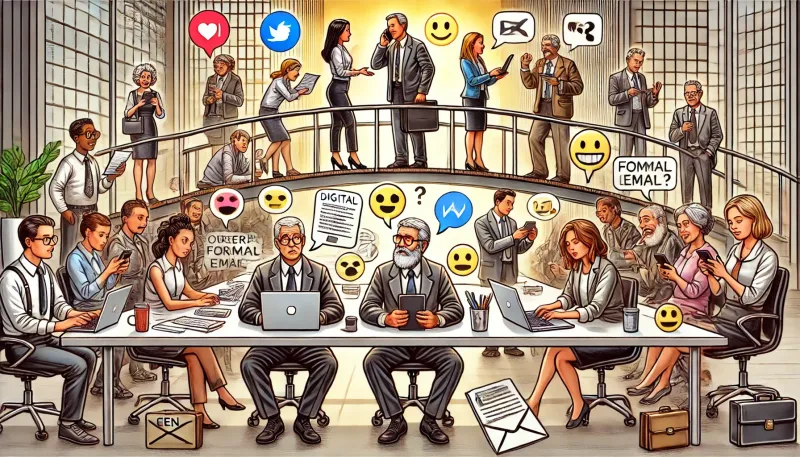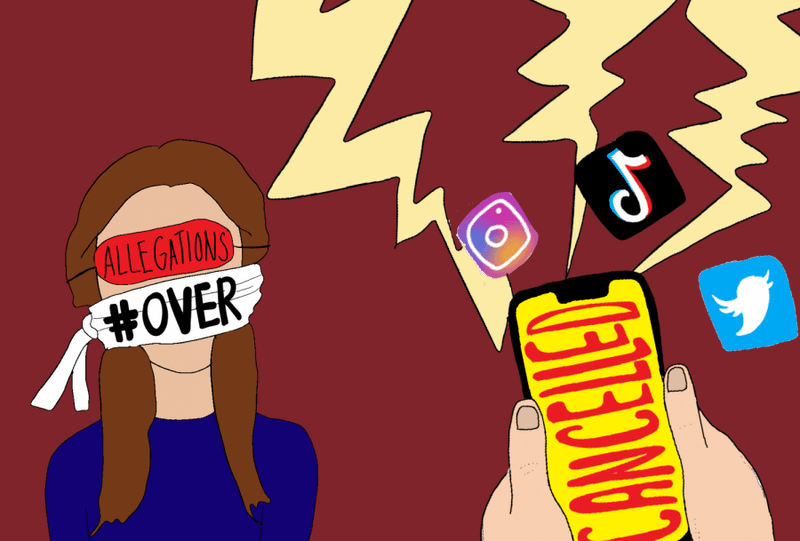15 Things Gen Z Sees As Basic Respect That Boomers Still Think Are Overreactions
I don’t know about you, but there’s a point where you just stop pretending it doesn’t get under your skin. The way your parents, or maybe that manager who still signs emails with “Regards,” react to stuff you think is normal—like asking for a mental health day or using emojis at work—makes you feel a little unhinged.
It’s not drama. It’s boundaries. It’s basic respect. This isn’t a rant about “kids these days” or a list to roast boomers. It’s a reality check. If you’ve ever felt like you’re speaking a different language when you talk about what feels fair, you’re not alone.
Let’s talk about the 15 things Gen Z sees as just treating people right—and why it still feels like a battle with the generation that came before us.
1. Work-Life Balance Isn’t Optional

We grew up watching our parents stress about missing dance recitals and dinner conversations. We learned early that a job is supposed to fit into a full life, not the other way around. For Gen Z, protecting our evenings isn’t laziness or entitlement; it’s refusing to let work eat us alive.
Boomers built their reputations on showing up early and staying late, sometimes even to the point of exhaustion. Maybe it came from survival or pride, but it left a generation feeling burnt out, disconnected from anything outside their paycheck. That’s not a badge of honor to us—it’s a warning sign.
So if it seems like we’re drawing lines in the sand, it’s because we know what happens when you never say “enough.”
2. Talking About Mental Health Isn’t TMI

To us, talking about seeing a therapist is like sharing a favorite recipe—practical, not scandalous. It’s not about “broadcasting problems,” it’s about refusing to carry shame.
Boomers often hid their struggles, believing the strong thing was to keep quiet and “push through.” That’s not bravery; that’s bottled stress. We want honesty. If we need a mental health day, we take it and talk about it.
You don’t have to dig for clues or pretend you’re fine when you’re not. We want a world where “How are you?” isn’t just small talk, but a real question. For us, honesty about mental health means you respect yourself—and others—enough to be real.
3. Questioning Authority Isn’t Disrespect

Picture this: you’re at work, and someone proposes a policy that makes no sense. Gen Z doesn’t just nod along. We ask, “Why?” and “Is this fair for everyone?” Some people call that troublemaking. We call it integrity.
Boomers were taught that challenging authority bordered on insubordination. There’s a fear that questioning means you don’t respect your elders or bosses. For us, respect is earned by listening and being transparent, not just by having a title.
We’re not trying to flip tables or spark rebellion every Monday. We want leaders who are accountable. If you can’t explain your decision, maybe it’s time to rethink it. That’s not attitude—it’s the baseline for trust.
4. Workplace Transparency

It’s only fair to continue with transparency in the workplace. For Gen Z, this isn’t just appreciated; it’s demanded. We thrive in environments where open communication and clarity are prioritized. Being upfront about company goals, expectations, and challenges fosters trust and engagement.
Again, Boomers might interpret this insistence on transparency as questioning authority. Historically, hierarchy was more rigid, and information was shared on a need-to-know basis. Gen Z, however, sees transparency as a sign of respect, paving the way for collaboration and innovation.
It’s about creating workplaces where everyone feels valued and informed, aligning with their desire for mutual respect and understanding.
5. Casual Communication Isn’t Sloppy

It makes me laugh how sending “lol” in a work email can make someone’s eyelid twitch. Gen Z leans into informal language, emojis, and GIFs not because we’re careless—it’s how we connect. When we message like we talk, it’s honest and human.
Boomers often see casualness as a slippery slope toward chaos. To them, “Best regards” means you’re serious. To us, too much formality feels stiff and fake. It doesn’t build trust; it builds walls.
We aren’t trying to turn every meeting into a meme fest. But if using an emoji gives some warmth or clarity, why not? We want to be understood, not just managed. Being real beats being robotic—every single time.
6. Texting Isn’t Lazy

My mom still calls instead of texting to ask what I want for dinner. Every. Single. Time. But for Gen Z, texting isn’t about avoiding people—it’s about respecting their time. A message lets someone respond when they’re ready, without interrupting their day.
Boomers see texting as impersonal, even lazy. For us, it’s efficient and mindful. It’s not about hiding behind a screen; it’s about making communication smoother for everyone.
We can FaceTime if there’s something urgent. But don’t expect us to drop everything for a call when a simple text will do. It’s not cold—it’s considerate. That’s the new normal, whether the phone rings or not.
7. Comfortable Clothing Isn’t Unprofessional

One of my coworkers wore sneakers to a big meeting and got side-eye all day. The irony? She led the project and nailed every question. For Gen Z, comfort is a right, not a privilege reserved for weekends.
Boomers often see a suit as a sign of respect. But wearing clothes that actually fit your style and body isn’t about slacking off—it’s about feeling good enough to do your best. We believe productivity and creativity don’t come from stiff collars and pinched toes.
If you see us in relaxed gear, know we’re not being casual about our work—just about our clothes. We want our brains to work hard, not our waistbands.
8. Changing Jobs Isn’t Flakiness

Moving for better opportunities isn’t flaking—it’s knowing your worth. Boomers may see frequent job changes as instability or lack of loyalty.
But staying put just because “that’s what you do” feels like inertia, not integrity. We want to grow, not just clock in and out for decades.
When we switch paths, it’s not a sign we’re lost. It’s a sign we’re searching for a place that fits. If that looks restless, maybe it’s the world that needs to catch up—not us.
9. Sharing Online Isn’t Oversharing

Posting about anxiety or heartbreak on Instagram isn’t about attention-seeking. It’s the way to stay connected and find support. Sometimes you need to know someone else gets it—even if it’s a stranger scrolling by.
Boomers worry about privacy and judgment. They wonder why anyone would want their business out in the open. But we grew up with the internet as our diary, not just a bulletin board.
If we talk about our ups and downs, it’s not for likes. It’s to make those moments less lonely. We’re building community out of raw honesty, not pretending life is picture-perfect.
10. Canceling Isn’t Always Cruelty

Gen Z doesn’t believe in brushing things under the rug just because someone is famous or powerful. If a celebrity acts out, we call it out. Cancel culture isn’t about mob mentality—it’s about holding people accountable for real harm.
Boomers see canceling as a witch hunt, missing the point that public accountability is overdue. We’re not here for empty apologies or “boys will be boys.” When someone crosses a line, we expect consequences, not cover-ups.
That doesn’t mean we’re unforgiving. It means our bar for respect includes calling things what they are. If that’s harsh, maybe the world was too gentle with the wrong people for too long.
11. Calling Out Microaggressions Isn’t Sensitive

There’s a subtle art to noticing the tiny digs people drop without realizing. When Gen Z points out a microaggression, we’re not being dramatic—we’re setting the record straight. Letting those things slide just lets them grow.
Boomers learned to “not make waves.” They were taught that small slights were best ignored or brushed off. But we know the damage builds, one offhand comment at a time.
When we speak up, it’s not to embarrass anyone. It’s to make things safer for the next person. It’s not about being thin-skinned—it’s about not letting the same old wounds fester.
12. Digital Privacy Isn’t Paranoia

My friend Jamie covers his laptop camera and sets social profiles to private. His parents think he’s paranoid, but with breaches everywhere, can you blame him? To Gen Z, guarding your digital life is common sense, not conspiracy.
Boomers didn’t grow up in the fishbowl of the internet. For us, boundaries online are as crucial as locking the front door. We know that once something’s out there, you can’t always get it back.
Taking privacy seriously isn’t about hiding. It’s about choosing what parts of life are public. That’s not fear—it’s control. And we’re not giving it up.
13. Digital Detox Acceptance

Logical continuation from digital privacy is disconnecting from technology. It’s not only accepted but encouraged. For Gen Z, taking time away from digital screens is seen as a vital respite, a chance to recharge mentally.
This practice, known as a digital detox, is viewed as basic self-care. It’s not about rejecting technology but finding balance.
On the other hand, boomers often see this as an overreaction, a needless step away from connectivity. To them, constant availability is the norm. However, Gen Z champions mental health, valuing time offline as crucial, reflecting a shift toward prioritizing personal well-being.
14. Flexible Schedules Aren’t Laziness

Remember when offices expected everyone in at 8 sharp, suit pressed, coffee in hand? Gen Z doesn’t see the point. If you can do your work from a beach or a library, why not?
Boomers often see flexible hours as slacking off, but we see it as making work fit life, not vice versa. Productivity isn’t about clocking hours; it’s about getting things done—and still having a life worth living.
We value trust over timecards. If we show up for the results, does it matter if it happens at noon or midnight? Flexibility is respect, plain and simple.
15. Boundaries Aren’t Rejection

Setting boundaries shouldn’t feel like a betrayal, but it often does—especially with family. Gen Z is learning to say, “I need space,” or “No, I can’t this time,” and mean it. It’s not about shutting people out; it’s about protecting our own peace.
Boomers may see boundaries as cold or selfish. They were raised to keep the peace, even if it cost them comfort. For us, drawing a line is a way to show we care—about ourselves and the people we keep close.
When we ask for room to breathe or time to process, it’s not personal. It’s necessary. Respect means letting people choose what they can give, not guilting them into more.







